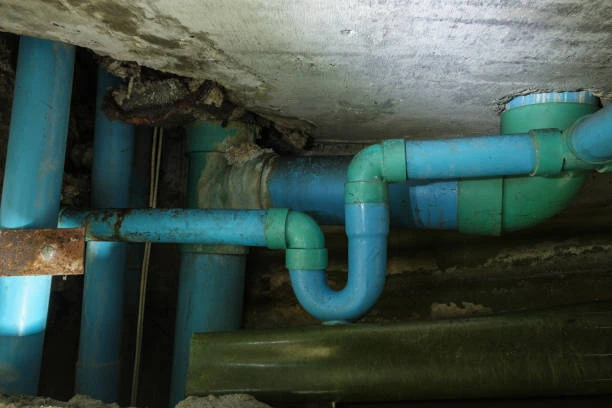Introduction
The Vinyl Institute advocates for the increased use of CPVC in US water systems. PVC (polyvinyl chloride) pipes offer durability, cost-efficiency, and environmental benefits, making them ideal for modern infrastructure projects. The Institute highlights PVC’s advantages as water systems nationwide face aging infrastructure and rising demands for sustainable solutions.
CPVC Pipes Provide Long-Term Durability for Water Systems
PVC pipes offer excellent durability, with a lifespan exceeding 100 years under proper conditions. Unlike metal pipes, CPVC does not corrode, crack, or deteriorate when exposed to moisture, chemicals, or varying temperatures.
PVC Enhances Cost-Efficiency in Water Infrastructure
The affordability of CPVC pipes makes them a cost-effective solution for water systems. Their lightweight design reduces transportation, labor, and installation costs, saving municipalities significant resources on infrastructure projects.
CPVC Pipes Support Clean and Safe Water Distribution
CPVC pipes are designed with a smooth, non-reactive interior surface that offers significant advantages for water systems. This unique feature prevents the buildup of biofilm, a common problem in metal or older pipe materials where microorganisms can accumulate and grow. Biofilm not only compromises the integrity of the water system but also creates an environment where harmful bacteria, such as Legionella, can thrive and pose health risks to consumers.
By resisting biofilm formation, CPVC pipes ensure that water flows freely and uncontaminated through the system, maintaining high levels of cleanliness and purity. The non-reactive surface also prevents chemical leaching or corrosion, reducing the risk of harmful substances entering the water supply. This is particularly important for potable water systems, where consistent water quality is essential for public health.
In addition, the smooth inner surface of CPVC pipes minimizes friction and flow resistance, which helps maintain water pressure and energy efficiency throughout the distribution network. Unlike corroding metal pipes that degrade over time, CPVC’s durable design ensures a long-lasting solution for clean and safe water delivery.
By reducing the potential for contamination and ensuring reliable performance, CPVC pipes provide municipalities, businesses, and homeowners with a modern, efficient piping solution that prioritizes water safety, quality, and sustainability for years to come.
The Vinyl Institute Highlights Sustainability of PVC Pipes
The Vinyl Institute emphasizes CPVC as an environmentally responsible choice. PVC pipes are recyclable, energy-efficient to produce, and require fewer resources during manufacturing compared to traditional materials like metal or concrete.
PVC Pipes Reduce Water Loss in Aging Infrastructure
Leakage in aging water systems wastes billions of gallons of water annually. PVC pipes minimize water loss with their watertight joints and resistance to leaks, offering reliable performance over time.
CPVC Pipes Meet Industry Standards for Safety and Quality
The Vinyl Institute ensures that PVC pipes meet or exceed industry standards. They are rigorously tested for performance, safety, and compliance with US water infrastructure regulations.

Why Municipalities Choose PVC for Water Systems
Cities and municipalities choose CPVC pipes because they offer low maintenance, exceptional durability, and long-term cost savings. These advantages make PVC a preferred choice for water infrastructure upgrades.
CPVC Pipes Are Ideal for Corrosion-Prone Areas
In regions with corrosive soil or water conditions, PVC pipes excel. Unlike metal, PVC resists corrosion, ensuring a longer service life and reduced maintenance costs in challenging environments.
PVC Pipes Help Address America’s Aging Water Infrastructure
America’s water systems are under increasing pressure due to the challenges posed by aging infrastructure, which has led to frequent leaks, water loss, and costly repairs. Many of these systems, originally installed decades ago, rely on outdated materials such as corroding metal pipes that are no longer capable of meeting modern water distribution needs. The Vinyl Institute highlights CPVC pipes (chlorinated polyvinyl chloride) as an effective, long-term solution to address these critical issues.
CPVC pipes offer significant advantages over traditional materials, including superior resistance to corrosion, scaling, and chemical damage. This makes them particularly suited for replacing outdated infrastructure in residential, commercial, and municipal water systems. Their long service life, low maintenance requirements, and ability to withstand varying water pressures and temperatures ensure reliable performance over time.
Furthermore, CPVC pipes are lightweight and easy to install, reducing labor and transportation costs associated with infrastructure replacement projects. This efficiency allows cities and municipalities to modernize their water systems quickly and cost-effectively. The Vinyl Institute advocates for CPVC as a forward-thinking choice, providing both durability and efficiency while addressing the nation’s need for sustainable infrastructure.
By championing the adoption of CPVC pipes, the Vinyl Institute promotes the modernization of America’s water networks with materials that are not only durable and reliable but also capable of supporting clean, safe water delivery for future generations.
CPVC Supports Innovation in Water System Development
The Vinyl Institute promotes innovation through the use of PVC pipes. PVC’s versatility allows for improved designs, advanced installation methods, and sustainable solutions for water infrastructure needs.
Conclusion
The Vinyl Institute makes a compelling case for the adoption of PVC pipes in US water systems. With unmatched durability, cost-efficiency, and sustainability, PVC offers a reliable solution to modernize aging infrastructure. By reducing water loss, ensuring safety, and promoting long-term savings, PVC pipes support clean water delivery and sustainable development across the nation.
FAQs
- Why is PVC considered a good choice for water systems?
PVC pipes are durable, cost-effective, corrosion-resistant, and provide clean, safe water delivery. - How long do PVC pipes last in water systems?
PVC pipes can last over 100 years, offering long-term reliability for water infrastructure projects. - Are CPVC pipes environmentally friendly?
Yes, PVC pipes are recyclable, require fewer production resources, and help reduce water loss. - How do PVC pipes reduce water loss?
PVC pipes feature watertight joints and leak resistance, preventing water loss in distribution systems. - What makes PVC better than metal pipes for water systems?
PVC pipes resist corrosion, cost less to install, and require minimal maintenance compared to metal alternatives.